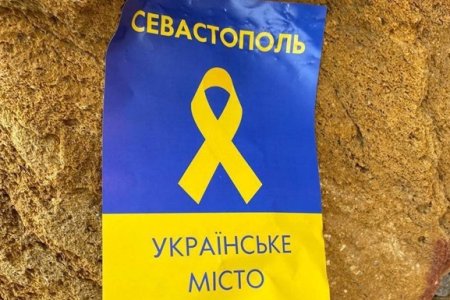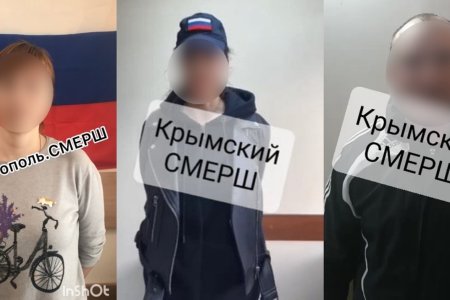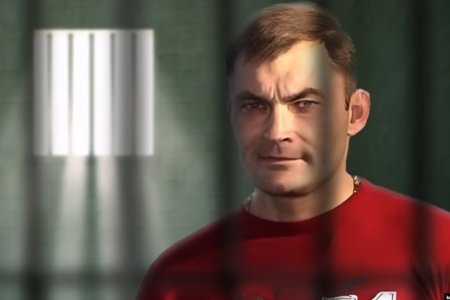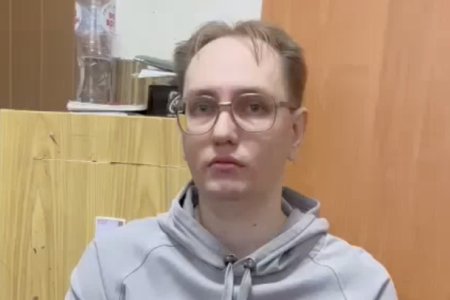
In May this year, a Russian-controlled ‘court’ in occupied Crimea found Rustem Nebiev guilty of ‘discrediting Russia’s use of its armed forces for the defence of Russia’s interests, and those of its citizens’. He had allegedly committed this ‘offence’ by reporting on the seizure by Ukrainian forces of a Russian missile system, and through his posting of a video clip on the social network VKontakte. The latter showed the map of Ukraine in the colours of Ukraine’s national flag, and the words “We will win this war because an army is fighting for Russia, whereas it is the people who are fighting for Ukraine. Glory to Ukraine!”. In fining him 30 thousand roubles under Article 20.3.3 § 2 of Russia’s administrative code, ‘judge’ Alexei Mikitiuk from the occupation ‘Kievsky district court’ in Simferopol claimed that the VKontakte post was “linked with an attack on public order and safety, and that it indicates a high level of public danger of the offences in the given sphere.”
The norm on ‘discrediting the Russian armed forces, etc’ was one of two administrative and two criminal charges hastily added to Russian legislation within ten days of Russia’s full-scale invasion of Ukraine. All four have been widely both in Russia and in occupied Ukraine, with sentences ranging from fines to long terms of imprisonment clearly aimed at terrorizing the population and silencing protest. Crimean Realities reported on 10 June that human rights groups estimate the number of people prosecuted for anti-war protest to be close to a thousand in occupied Crimea alone. It should be said that very many of the convictions under Article 20.3.3 have been for playing Ukrainian patriotic songs, the Ukrainian national anthem or displaying the Ukrainian flag, rather than for directly expressing anti-war sentiments. There is a criminal charge, under Article 280.3 of Russia’s criminal code, with almost identical wording. This tends to be used over actual criticism of the war and is especially dangerous since such criminal charges and more serious terms of imprisonment can be imposed merely if a person has already been convicted on the administrative charge within the last year.
Russia has used brutal repression in occupied Crimea, but the ongoing number of such prosecutions makes it clear that there remains considerable opposition to the war and identification with Ukraine in occupied Crimea.
In this latest report, Crimean Realities focused on employees of municipal occupation ‘authorities’ who had faced persecution for their dissent. As well as Rustem Nebiev, an electrician for such ‘authorities’, the example was cited of Yury Fandiushkin, an employee of the occupation ‘Yalta city council’.
Fandiushkin was yet another victim of notorious collaborator Aleksandr Talipov and his so-called ‘Crimean SMERSH vigilantes. He and his cronies hunt down Ukrainians expressing pro-Ukrainian and / or anti-war views, and very clearly work in close cooperation with Russia’s ‘centre for countering extremism’ and other enforcement bodies. Talipov & Co. produce videos in which their victim is shown expressing ‘repentance’ and promising not to commit such ‘offences’ again. The videos very often look as though they were made in occupation ‘police’ offices. Very often the person looks seriously stressed and as though is reciting something he or she has been forced to say. This applies to the video, initially posted by ‘Crimean SMERSH, of Fandiushkin’s ‘confession’. It is unclear in any individual case whether the person has been tortured into providing such humiliating ‘apologies’ or threatened with even worse charges, some carrying long sentences, if they do not obliged.
Fandiushkin was accused under Article 20.3.3 § 1 of ‘discrediting’ the Russian armed forces, etc. both in personal discussions and on social media. He was convicted of this on 19 April 2024 by Krystyna Yuryevna Kirillova from the occupation ‘Yalta municipal court’. It is unclear what the penalty imposed was from the details on the website.
In its report on repression in occupied Crimea via Article 20.3.3 during the first two years of Russia’s full-scale war against Ukraine, Crimean Process noted that the number of such cases increased significantly from the beginning of the second year and remains high. The vast majority of such cases result in a conviction.
As reported here, the above-mentioned four norms are by no means the only weapons used against those persecuted for their pro-Ukrainian and / or anti-war position. Feodosia street artist Bohdan Ziza had fake ‘terrorism’ charges laid against him over a protest on 16 May 2022, and is now serving a horrific 15-year sentence. There are very strong grounds for doubting the ‘treason’ charges and accusation of ‘rail sabotage’ brought against Ukrainian sportsman Kyrylo Barannyk and several other Crimea Ukrainians. The same is true of the recent five-year sentence passed against 35-year-old Mykola Onuk, who was probably arrested for pro-Ukrainian graffiti as part of the ‘Yellow Ribbon’ peaceful resistance movement.



